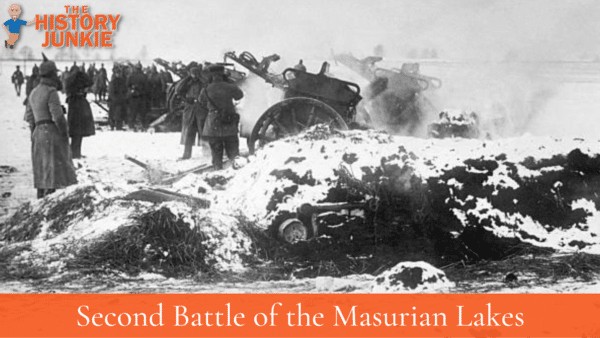The Second Battle of the Masurian Lakes was a German offensive against Russian forces in East Prussia in February 1915 during World War 1.

The battle was part of a larger German plan to defeat Russia on the Eastern Front.
The German commander, Paul von Hindenburg, planned to outflank Russian positions in central Poland by pushing them back beyond the Vistula River.
To do this, he deployed two armies in East Prussia: the Eighth Army, commanded by General Maximilian von Below, and the Tenth Army, commanded by General Hermann von François.
The Battle
The battle began on February 7, 1915, with a surprise attack by the Eighth Army on the Russian Tenth Army. The Russians were caught off guard and quickly forced to retreat. The Eighth Army advanced almost 70 miles within a week.
On February 9, the German Tenth Army attacked the Russian right flank. The Russians were again caught off guard and forced to retreat. The Tenth Army advanced even faster than the Eighth Army, and by February 14, the Russian Tenth Army was in full retreat.
The Russians suffered heavy casualties in the battle, losing an estimated 56,000 men. The Germans suffered relatively few casualties, and they captured an estimated 100,000 Russian prisoners.
The Second Battle of the Masurian Lakes was a major victory for the Germans. It forced the Russians to withdraw from East Prussia and weakened their position on the Eastern Front. The battle also helped to boost German morale and confidence.
However, the German offensive in the Carpathians was less successful. The Austro-German South Army was unable to break through Russian lines, and the offensive was eventually halted.
Despite this setback, the Second Battle of the Masurian Lakes was a major strategic victory for the Germans. It weakened Russia and helped to pave the way for the German victory in the East.
